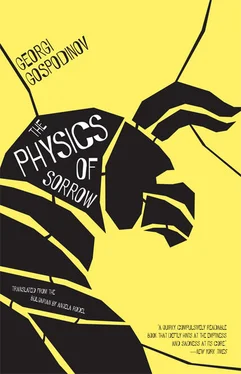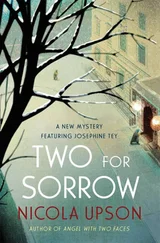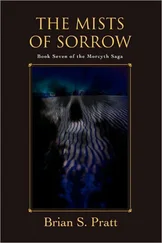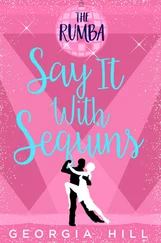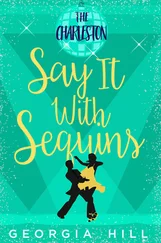Aging requires a certain audacity. It may not be audacity, but resignation.
At eleven, I started a secret notebook in which I wrote down the first signs of aging and death. Death and children is an unjustly neglected topic, I’ve never been as close to death as I was then. Over the years, we’ve grown a bit distant and cold, although I’ve always kept my eye on it, just as it has on me, of course. Here are the things, from different years and in no particular order, puttering around in that box.
Cardiac exam. Sooner or later, everyone ends up lying here, the nurse says soothingly, as she attaches wires and clamps to my whole body. The noises, which I hear amplified in that way for the first time, are revolting. The discovery that the heart is a frog, judging by its croaking. My death will come like a stork, I write down upon leaving.
(41 y.o.)
I grow old. I grow old.
I shall wear the bottoms of my trousers rolled.
I love these lines by Eliot and I am afraid of them. That devil-may-care whistled tune of old age, which actually hides nothing. So humbly humiliated, so unheroic, rolling up the pant legs hiding the sagging white skin and the telltale blue veins. Just the ankles.
My left ankle is a frightful sight, shattered and stitched, with the years the scars will only deepen.
(53)
Today in front of the mirror I noticed that my left half is aging more quickly than my right half. I haven’t shaved in a few days (I don’t have anyone to shave for anymore, as my father used to say) and can clearly see how the left half of my beard is almost completely gray, while the right side has only a few gray hairs. Besides that, my left eye has starting visibly drooping in the outside corner, the eyelid muscles can’t hold out like they used to, when I gaze at something for a bit longer I notice some traitorous involuntary twitches. I wonder if such a difference is visible in my body as well. I look it over carefully, but can’t seem to find a visible difference between the left and right sides. OK, that’s if we don’t count that shattered left ankle, which is quite different and swollen, as is my broken left wrist. And one ear that’s ever more hard-of-hearing, precisely the left one.
I’m not even aging evenly.
(49)
They say that as we grow older, our dead start talking to us ever more often. We lose the sounds of the world, so that we can hear other sounds and other voices more clearly and without interference. For now, I’m still only hearing noises.
(38)
How would you describe the noise in your ear, my doctor friend asks.
I don’t know. it’s not that simple.
Come on, now, aren’t you a writer?
Well, I’m the most uncertain of them (even though this, too, is uncertain).
Is it like the sound of the sea? The doctor tries to prompt me.
I guess you could say that, but sometimes it is wild and sounds like crashing surf, other times it’s more like wind in the late October woods, what I mean is, the leaves are dry enough and some of them have fallen, which affects the frequency of the noise. Sometimes, when there are high frequencies, it sounds like a washing machine on spin cycle two floors away, a thin howl. Sometimes it’s like moooooo, but the calf is young and hoarse.
While I list off these sounds, my doctor’s face grows ever more bewildered, rather than clearing up. What can I do, things are never so simple and unambiguous. Once I almost read a nurse the riot act when she made me describe the color of my urine. “Is it the color of beer?” she asked. There are so many different kinds of beer, for Christ’s sake, there’s light beer, dark beer, red ale, white ale, live-culture beer, non-alcoholic. You can’t just roll them all together like that.
I can’t stand categorical people.
(29)
It hurts right here, something down on the left, maybe it’s my appendix.
Stop with the self-diagnoses, if you please. The appendix is on the right. There’s nothing that could be hurting there on the left.
What do you mean nothing?
Just that. There’s nothing there.
Well, it’s precisely that nothing that’s hurting me.
(64)
The hope that if you start telling your life story backward toward childhood, it will set some mechanism into motion and fool the direction [of time].
Funny version. A guy decides to quit smoking using regressive hypnotherapy. He starts going backward toward the time before he started smoking, to awaken the memory of his clean lungs. The hypnotherapy is so successful and the regression goes so far back that he not only quits smoking, but also starts wetting his bed and not being able to say “R.”
(43)
In her Pillow Book , Sei Shōnagon gives two lists — Things that inspire sorrow and Things that drive away sorrow. The things that drive away sorrow in the early eleventh century, the Heian Period, include old tales and the sweet chatter of three-to-four-year-old children. I copy it down several times: old tales and the sweet chatter of three-to-four-year-old children, old tales and the sweet chatter.
(990)
I remember clearly how we read back then. The whole ecstasy of that youthful reading, it wasn’t reading, but galloping, racing through books. We sought out the racehorse of action, direct speech, short, muscular expressions. We hated the ritardandos, the descriptions of nature, who needed them.
Now I feel the need to stop, like an old man winded by climbing up a slope he used to take in three bounds. The hidden pleasures of slowness. I love to linger long over some “It was a pleasant May morning, the birds were shouting with song, the dew glowed beneath the sun’s soft rays. ”
(69)
Our lifelong, round-the-clock jabbering seems to have a single, solitary goal, which we never say out loud. To bamboozle death, to send it off on a wild goose chase, to make a feint at the last moment. But death isn’t moved by words. It is most probably deaf (like me). This is the source of its supreme impartiality.
(85)
The years are a rushing river, flowing day by day
In its currents youth and childhood are swept clean away.
The years they are like song birds, flying south in fall
But unlike birds the years will never return to us at all.
(9)
We grew old before we grew up.
(35)
He started traveling, in fact, fleeing from old age, but ironically it was precisely there, in other places, where his first signs of aging appeared.
One morning at age thirty-five he saw his body in the large, mirror-laden bathroom of a Greek hotel. He had never examined it so closely before. He had a good, healthy, normal body. Not counting the broken arm, whose white plaster cast was starting to look weather-beaten. That morning, he saw the first signs of aging. Extremely faint, yet nevertheless clear. It had started years earlier, why hadn’t he paid attention until then? He told himself that he would remember the day. That he would remember that hotel in Thessaloniki. His body, white and soft, had started to go slack, the skin had started growing thin, becoming translucent with thin blue veins. It’s old age, he said to himself, just as a year or two earlier he would say to himself: it’s love. That’s how age happens sometimes, in just a few minutes one morning, at some foreign hotel. After that he would keep tabs on his body in hotel mirrors, that’s precisely where old age would be waiting to ambush him.
(34)
My grandfather had no time to notice that he was getting old. He had too much work to do.
(27)
I went to a writer’s funeral. While alive, he had hay fever. Now he was lying there, piled with flowers, looking as if he would start sneezing any minute. An orchid was sticking its tip right up his nose. But clearly he was already cured. I noticed, and I think the others noticed as well, the unfamiliar elderly women with blue hair and chrysanthemums at the other end of the funeral parlor who were truly upset. His former mistresses. The deceased had had a weakness for women. Now they were getting their fifteen minutes of fame. Invisible their whole lives, veterans of secret love affairs. From the army of the anonymous, unlike his official wife and his official mistress. In the end, old age has made everyone equal.
Читать дальше
